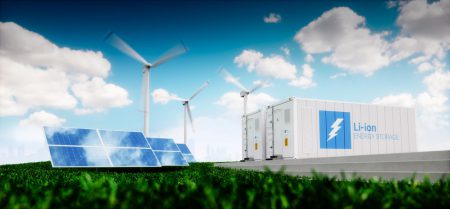Investors must not take eyes off the ball
Pressure on oil and gas companies
Oil and gas companies are under even more pressure to define their future and what role they want to play in the energy transition.
After initially slow progress with the global climate agenda, 2021 feels as if it could be an important turning point. While the effects of the distinctive weather patterns brought by La Niña will fade after the early months 2021, meteorologists believe that could pave the way for another year of record-breaking temperatures.
On the corporate agenda, a key focus will be how oil and gas companies define the role they plan to play in the energy transition. More companies chose to put their cards on the table in 2020, with companies such as BP declaring plans to target net zero carbon in oil and gas production on an absolute basis by 2050, and to cut the carbon intensity of products sold.
But the vast majority – those controlling around 90% of oil and gas output, according to the International Energy Agency – have made no such commitment. Are they going to buy into the vision for net zero or not?
There will be more scrutiny of saying and doing. In a lagging sector, those choices could have implications, in terms of the cost of finance for companies and the risk of future asset stranding.
Electric vehicles gain traction
Demand for electric vehicles (EVs) continues to grow, with total cost of ownership reaching parity with internal combustion in more markets.
Despite the short-term impact of Covid-19, which caused sales of EVs to drop sharply in the early part of 2020, overall appetite continues to grow.
Prior to the pandemic, sales of battery EVs and hybrids had been rising, but they still make up just a small part of all new vehicle sales – at less than 3%.
One of the key factors inhibiting consumers is cost: the total cost of ownership of an EV has tended to be higher than a car with a conventional internal combustion engine.
In 2021, we expect more markets to reach that important crossover point, where an EV holds the cost advantage.
More generous subsidies are part of the story. In France, for example, support for EV buyers was increased to €7,000 as part of the national Covid-19 recovery plan announced in June.
There are also plans to make the tax treatment of conventional cars with high fuel consumption and high emissions much tougher. In Germany, for instance, the Climate Protection Surcharge is expected to be lifted substantially for high emitters.
Meanwhile, practical challenges are gradually being addressed. The UK has committed to speed up the transition to EVs by prohibiting sales of new conventional vehicles to 2030, and several governments have committing to spinning out new charging infrastructure as part of their stimulus programmes.
Ultimately, this will make the experience of sourcing and owning an EV easier.
Energy storage
Developments in energy storage mean the prospect of grid stability from renewables is becoming a reality.
The lack of viable, large-scale energy storage has long been a critical issue inhibiting the scaling up of renewables. Recent developments in storage technology suggest part of the problem could be overcome by bridging the inevitable peaks and troughs that arise during day-night cycles.
By coupling renewables with large-scale energy storage, excess energy can be absorbed in peak periods, retained for a period, and then fed back into the grid.
Read more: Investment Week
It’s Time to Go Green!
If you would like to know more about Solar Panels and the PowerBanx range of home battery systems, and get a free instant quote, please complete our online form:


